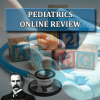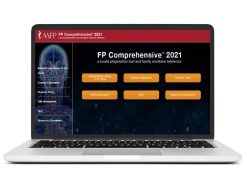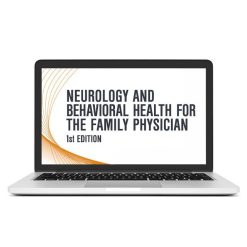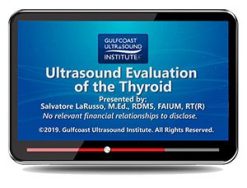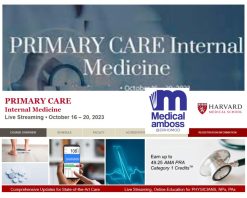Harvard Medical School and Brigham and Women’s Hospital Specialty Review
An immersive CME program geared toward optimizing transition of pediatric patients with chronic conditions into adult care.
Explore Key Topics
Chronic Conditions in Young Adults: Transitioning from Pediatric to Adult Care provides state-of-the-art strategies to help you effectively and efficiently transition these patients into your practice. This in-depth CME course includes case-based lectures on topics like congenital heart disease, diabetes, spina bifida, cancer survivorship, cardiovascular risk reduction, solid organ transplant, substance use disorder, and more. It will help you to better:
- Develop and implement practical strategies to transfer and accept patients with chronic conditions
- Navigate healthcare systems and their impact on transition to adult care
- Adhere to best practices for communication and goal setting with patients and families
- Get updates for sexuality and fertility with chronic disease
- Enhance your approach to patient and family engagement in chronic condition management and help them achieve health equity
Learning Objectives
After viewing this program, participants will be better able to:
Provide state-of-the-art care of chronic childhood conditions in adolescent and adult patients:
- Single-system disease, including congenital heart disease and epilepsy
- Multisystem disease, including cystic fibrosis and epilepsy
- Intellectual/developmental disabilities, including Down syndrome and autism
Develop and implement practical strategies to successfully transfer and accept patients with chronic childhood conditions:
- Care coordination and integration
- Supported decision-making
- Practice redesign and team-based care
- Adolescent health and wellness
Better navigate healthcare systems and their impact on transition to adult care:
- Quality improvement
- Reimbursement strategies
- National health policy
- Advocacy
Enhance your approach to patient and family engagement in chronic condition management and help them to achieve health equity:
- Communication skills
- Assessing self-management skills and readiness for transition to adult healthcare settings
- Coping with chronic illness
- Supports for community living
ACGME Competencies:
This course is designed to meet one or more of the following Accreditation Council for Graduate Medical Education Competencies:
- Patient Care and Procedural Skills
- Medical Knowledge
- Practice-Based Learning and Improvement
TOPICS/SPEAKERS
- Leaving Neverland – Niraj Sharma, MD MPH and Kitty O’Hare, MD
- Congenital Heart Disease – Keri M. Shafer, MD, FACC
- Diabetes – Katharine Garvey, MD, MPH
- HIV – Anne M. Neilan, MD, MPH
- Expert Panel: Transition Readiness and Self-Management in Chronic Disease – Moderator: Ahmet Uluer, DO MPH
- Patient Presentation: Surviving College with Inflammatory Bowel Disease – Patient and Provider Perspectives – Sarah N. Flier, MD, Janis H. Arnold, MSW, LICSW and Rebecca Sailer, BA
- Sexuality and Reproductive Health – Susan H. Gray, MD
- Assessing Your Current Practice of Transition Care: Primary Care Practice – Kitty O’Hare, MD and Colleen A. Monaghan, MD
- Assessing Your Current Practice of Transition Care: Specialty Care Practice – Ahmet Z. Uluer, DO, MPH and Susan Shanske, LICSW
- Adolescent Confidentiality – Maurice W. Melchiono, RN, MS, FNP-BC, NE-BC
- Tools to Support Self-Management – Kristine D. McKenna, PhD and Lynne Helfand, MSW, MPH, LICSW
- Enhanced Communication between Patients and Providers – Donna Lynn Nimec, MD
- Negotiating the Patient/Provider Relationship around Transitions in Care – Susan Shanske, LICSW
- Workshop: Writing a Transition Policy Statement – Niraj Sharma, MD, MPH, Kitty O’Hare, MD, Elizabeth Petersen, MD, MPH and Susan Shanske, LICSW
- Assessing Developmental Progression – Susan Shanske, LICSW
- Spina Bifida – Carlos R. Estrada Jr., MD, MBA
- Epilepsy – Ann Marie R. Bergin, MB, ScM, MRCP (UK)
- Down Syndrome – Stephanie L. Santoro, MD
- Autism – Sarah J. Spence, MD, PhD
- Expert Panel: Supported Decision-Making — From Healthcare Proxies to Guardianship – Jennifer Turek Queally, PhD, Susan Shanske, LICSW, and Christopher Ryan, MSW, LCSW
- Community Living for Young Adults with Cerebral Palsy – Laurie J. Glader, MD
- Implementing an Integrated Care, Hybrid Transition Model for Youth and Adults with Complex Needs: Early Experience – Richard C. Antonelli, MD, MS
- Incorporating Adults with ID/DD into Your Practice Setting: Primary Care Practice – Kitty O’Hare, MD and Colleen A. Monaghan, MD
- Incorporating Adults with ID/DD into Your Practice Setting: Specialty Care Practice – Ahmet Z. Uluer, DO, MPH and Susan Shanske, LISCW
- Billing & Coding for Transition Care – Colleen A. Monaghan, MD
- Educational Advocacy for Youth with ID/DD – Alison D. Schonwald, MD
- Healthcare Reform – Niraj Sharma, MD, MPH
- Quadruple Aim Approach to Transition Care – Ahmet Z. Uluer, DO, MPH
- Cancer Survivorship – Ann H. Partridge, MD, MPH
- Arthritis – Jonathan S. Hausmann, MD
- Sickle Cell Disease – Maureen M. Achebe, MD
- Cystic Fibrosis – Ahmet Z. Uluer, DO, MPH
- Patient Presentation: Impact of Social Determinants of Health on Youth with Chronic Conditions – Colleen A. Monaghan, MD and Stacy B. Klickstein, MSW, LICSW
- Expert Panel: Chronic Pain and Palliative Care – Emma M. Jones, MD and Rachael B. Coakley, PhD
- Solid Organ Transplant – Maureen M. Jonas, MD
- Substance Use Disorder – Scott E. Hadland, MD, MPH, MS
- Quality Improvement Strategies to Improve Transition Care: Primary Care Practice – Kitty O’Hare, MD and Colleen A. Monaghan, MD
- Quality Improvement Strategies to Improve Transition Care: Specialty Care Practice – Ahmet Z. Uluer, DO, MPH and Susan Shanske, LICSW
- Cardiovascular Risk Reduction in Young Adults – Anne Marie Valente, MD
- Building a Transition Consultation Program – Ahmet Z. Uluer, DO, MPH
- Innovative Strategies for Chronic Disease Management – Lori W. Tishler, MD, MPH
Termination Date: May 14, 2022 (Please note that AMA PRA Category 1 Credits ™ will no longer be issued for the activity after this date)
Estimated Time to Complete: 26.75 hours



